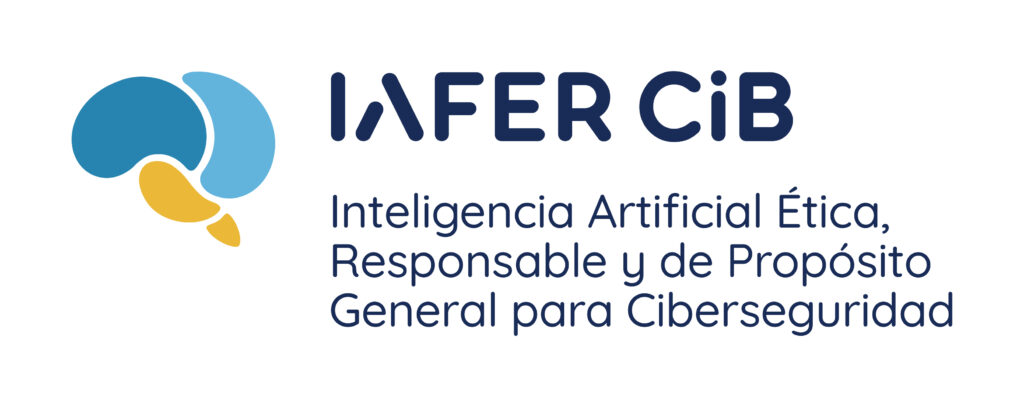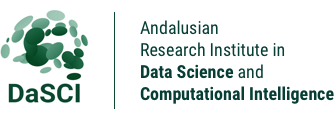The most investigative night is approaching and DaSCI is coming full of activities.
30 September, 2024
The European Researchers’ Night will be celebrated on Friday 27th September and DaSCI has many activities for you.
From GRANADA:
- 3 activities in the morning and 7 workshops and talks in the afternoon to enjoy the best applied AI.
- DaSCI Tent and AI Granada Foundation Tent at the Paseo del Salón in the morning and afternoon.
Women and men who do science for you is the motto of the night of researchers in Andalusia, coordinated by the Descubre Foundation and in which more than thirty institutions participate, including our centre DaSCI.
This year DaSCI has two marquees in which we will have 4 spaces full of activities:
- Microencuentros Space
- Your Skull is familiar to Me Space
- Experiences Space
- AI Granada Foundation Space
And in each of them we will have different activities. Make sure you don’t miss any of them.
In the morning and aimed at secondary school groups we have 3 workshops:
- Music and AI – We will explain the basics of neural networks, convolutional networks and strategies for creating large generative models that can be used from text (chatGPT) to sound (SUNO), accompanied by a hands-on workshop on how to use AI to create songs.
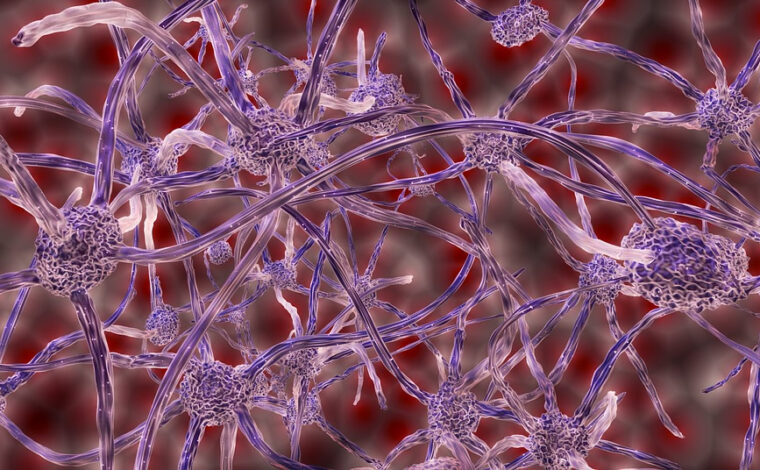
- Learn to talk to AI – Introductory and practical workshop for secondary school students on how to use popular AIs.
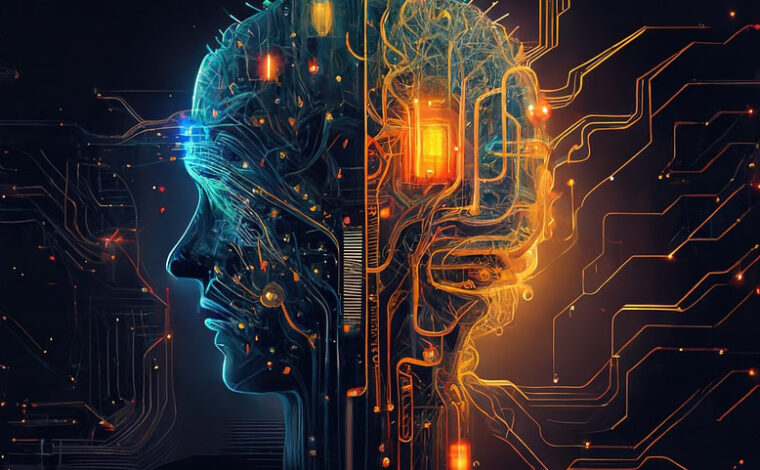
- Learning by playing how machines learn – More and more computer systems are being used to make decisions, or predict from data, so called Machine Learning is increasingly influencing our lives. However, it is the great unknown, it seems like magic, and it doesn’t have to be like that. In this workshop we will playfully apply, in groups, how machines come to ‘learn’ from data, applying it to a simple classification problem, the well-known game ‘Who’s Who’.
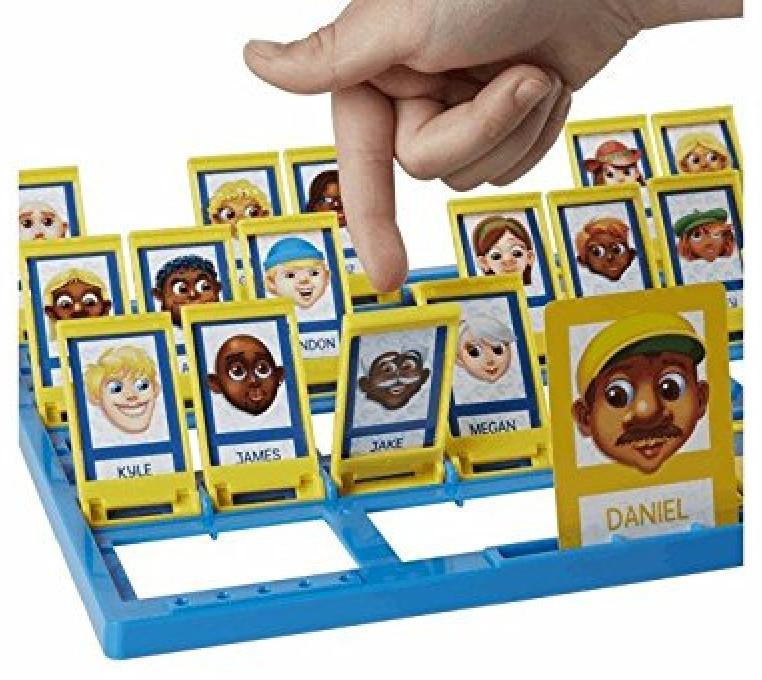
And in the afternoon we will have activities that run non-stop and one-off activities.
Uninterrupted:
- Your Skull is familiar for Me – Craniofacial superimposition is a forensic technique that has been done since the dawn of photography, however new technologies and AI can improve the potential of this tool and make it as powerful and accurate as any other forensic evidence, at the level of a fingerprint or a DNA sample. Do you dare to sit down in Your Skull Sounds Like Me and find out if your face matches any of the skulls we have?
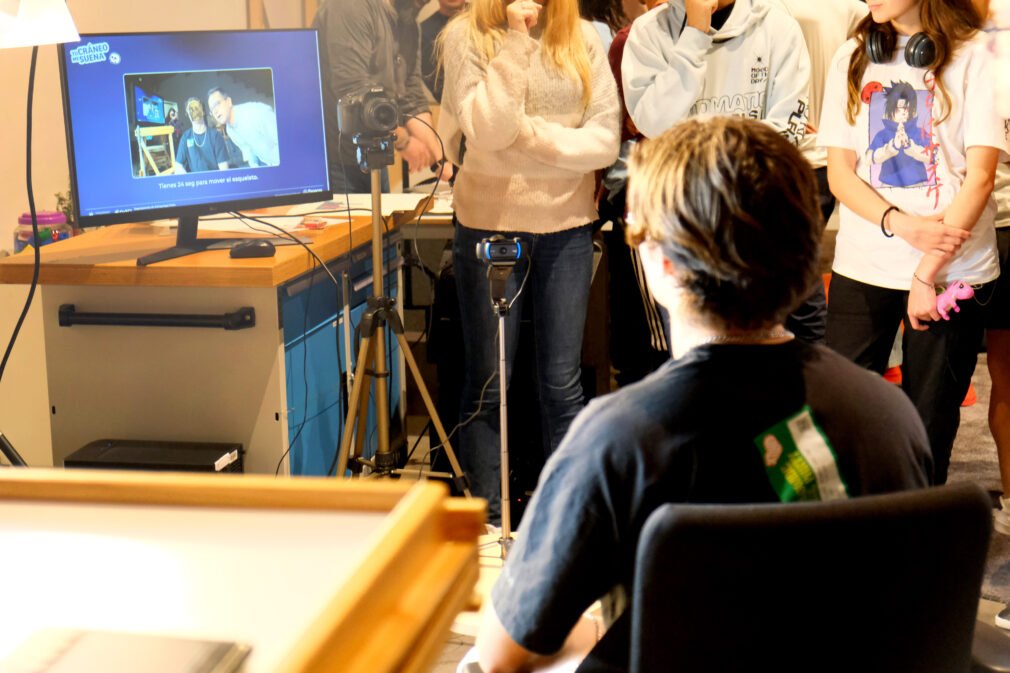
- Detection and marking of grapevine diseases in high-resolution images – Through a mouse-driven graphical interface, users can intuitively test the predictive capability of a computer vision model (semantic segmentation) to identify leaf regions where disease may be present.
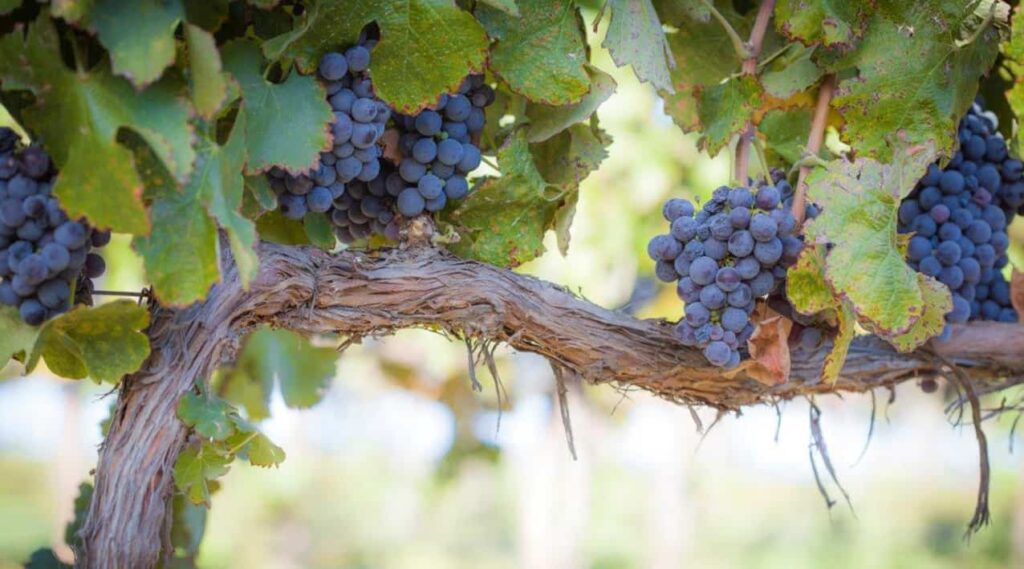
Las actividades puntuales serán:
- 19:00h – Search, or how AI solves problems – Do you know what Google Maps, AlphaGo and Boston Dynamics’ Atlas robot have in common? They all use ‘search’ techniques, a powerful tool that allows AI to solve all kinds of problems. In this activity, I will show an interactive demo where you can see how AI is able to solve any maze you draw. I will explain in a simple way how it works inside and how to apply search techniques to solve real-world problems.
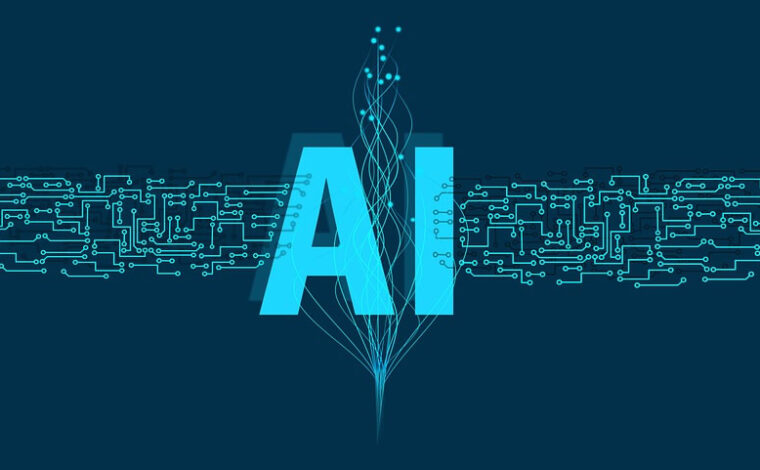
- 19:30h – Chatting with the Royal Hospital – We will show a kind of Chat-GPT with the building, in which we will ask questions about its Structural Health.
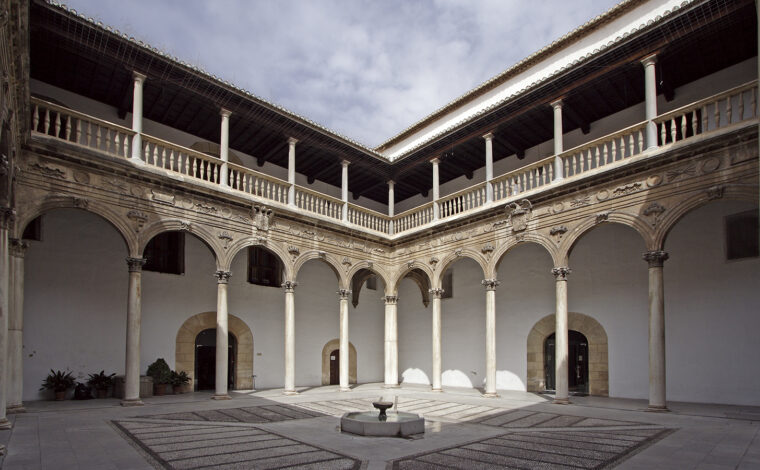
- 20:00h – Data Science – In this activity Rocío Romero will talk about Data Science and how it is changing the world around us.
- 20:45h – Live Podcast Recording – SintonIA: AI on the Airwaves – In this activity we will record an episode of the DaSCI podcast where we will talk about the topics and activities taking place during the European Researchers’ Night.
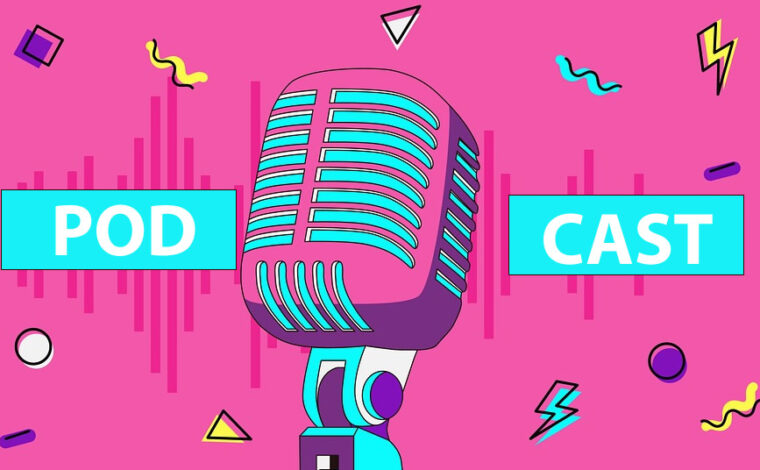
From JAEN:
- Plaza del Cortes Inglés at 17:00h – The Department of Computer Science organises the activity ConfIA in Artificial Intelligence: Explaining personality – The main objective of the activity is to provide the general public with a direct experience of interaction with different technologies and computer systems associated with the paradigm of artificial intelligence (AI) and to show how work is being done to make users trust the results provided by these systems. Specifically, work will be done on recommendation systems, which are intelligent systems that detect the needs and preferences of each user to filter in a personalised way through huge quantities of products and/or services by analysing the data. This data is extracted from the behaviour and use of applications by users, using artificial intelligence techniques. This activity will attempt to create an immersive experience for attendees by combining explainable Recommendation Systems with realistic graphical interfaces and state-of-the-art converters.
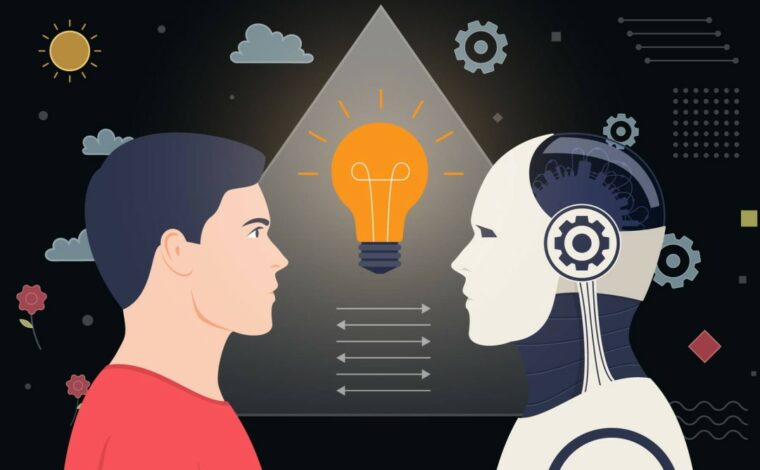
- Plaza del Cortes Inglés at 17:00h – The Department of Computer Science. Languages and Computer Systems organises the activity Artificial Intelligence: Learning and applications of neural networks – The idea is to show how Artificial Intelligence algorithms, specifically based on Deep Learning neural networks, are able to be applied to different prediction techniques in the field of computer vision. The user can choose the Deep Learning model that is already trained and use it to perform tasks such as image classification, segmentation, object recognition or pose detection. The models can be applied on images or use the computer’s webcam as a source.
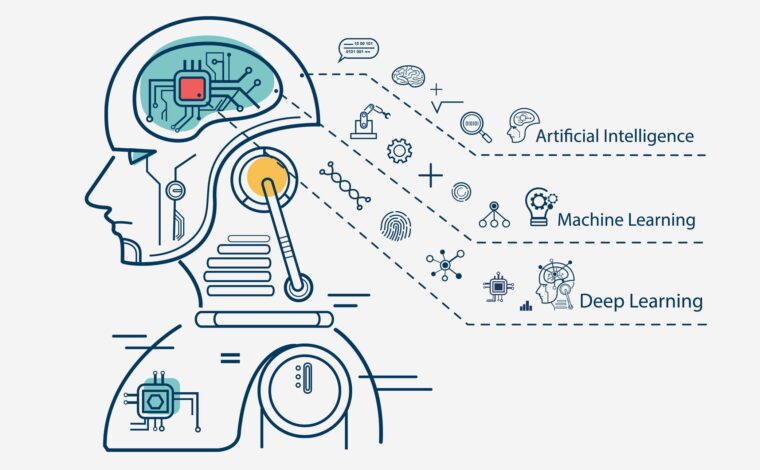
- Plaza del Cortes Inglés at 17:00h – The Department of Computer Science – CCIA organises the activity Playing SUMO with Artificial Intelligence – The activity will work with mcqueen robots, infrared sensors and Artificial Intelligence huskeylens cameras for object recognition that will allow the robots to fight each other in the game of Sumo. People who want to participate in this activity will be able to analyse and study the programming code that these robots have inside them for their operation, using a block programming language. Block programming allows programs to be implemented by means of actions such as moving, compiling and dragging programming blocks in a specific way so that the program in question fulfils the order or task foreseen. The interfaces of the different block programming tools are simple and present a user-friendly configuration for any user. This activity allows to enhance the so called computational thinking that can be used for solving everyday problems allowing a new perspective to carry out different solutions that are not easily considered by other people. In this process different phases can be distinguished:
1) Decomposition of a problem into smaller phases.
2) Recognition of repetitive patterns.
3) Abstraction of information irrelevant to the proposed problem.
4) Algorithms presented to solve the problem.
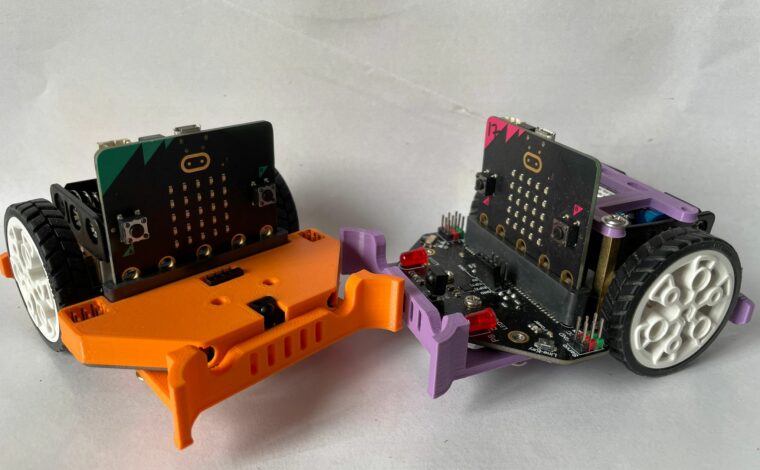
Press release of the night in Granada
The European Researchers’ Night comes with 300 activities to make science closer to the people and to society
- The UGR participates in the organisation of this European event and coordinates activities in Granada, Ceuta and Melilla.
- The fight against cancer and climate change will be at the centre of this year’s event.
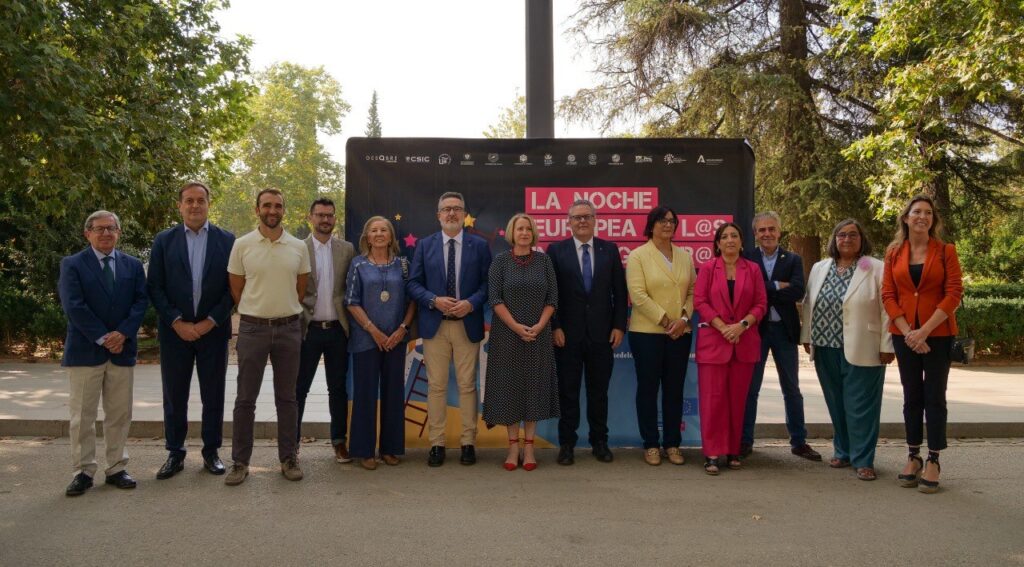
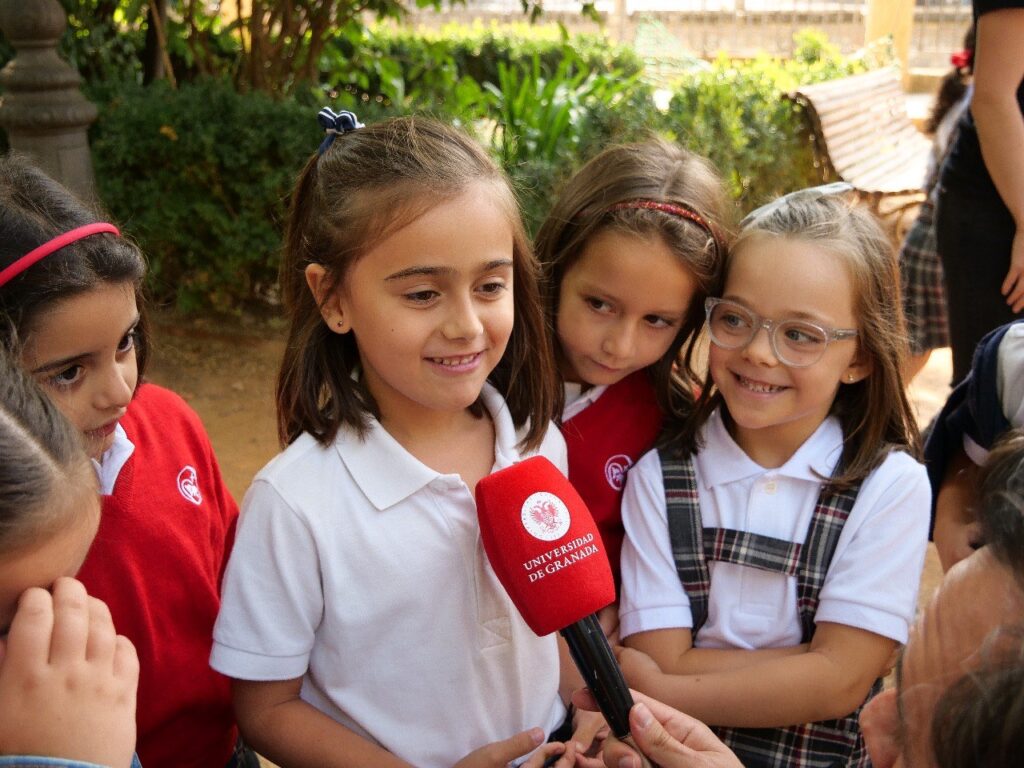
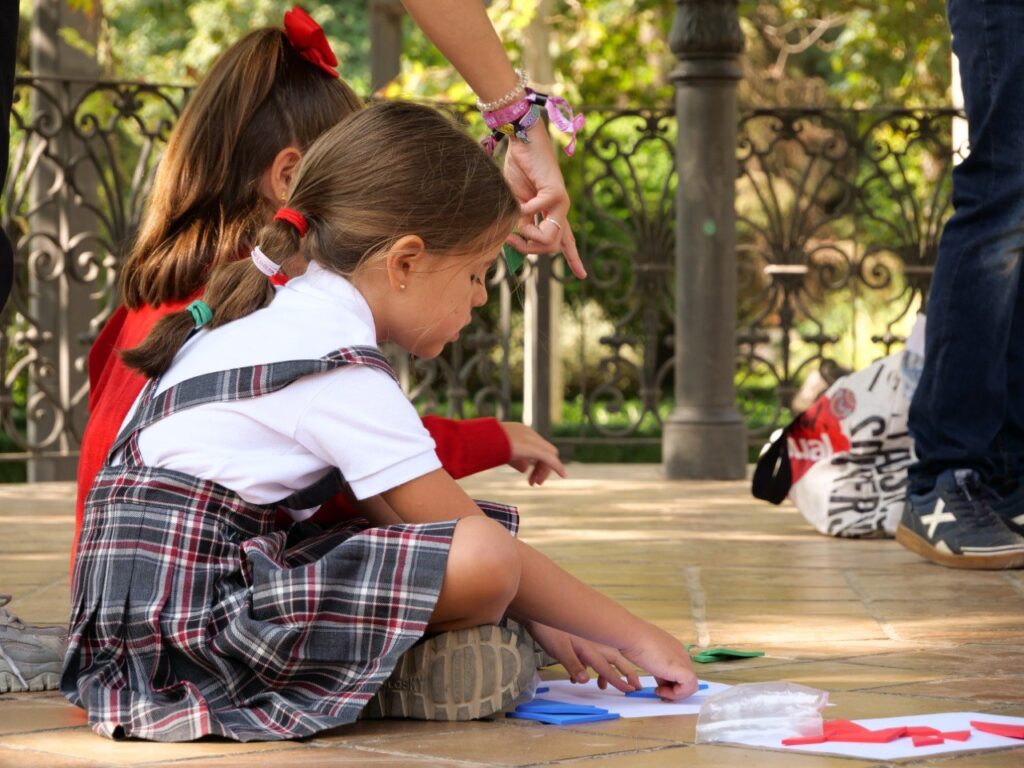
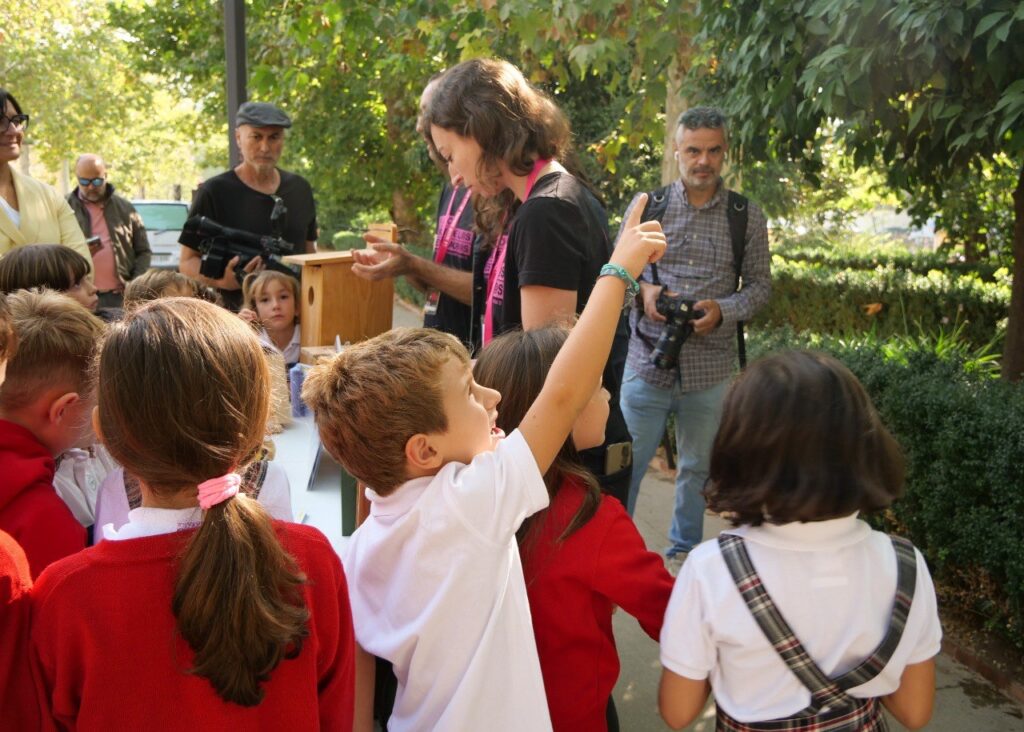
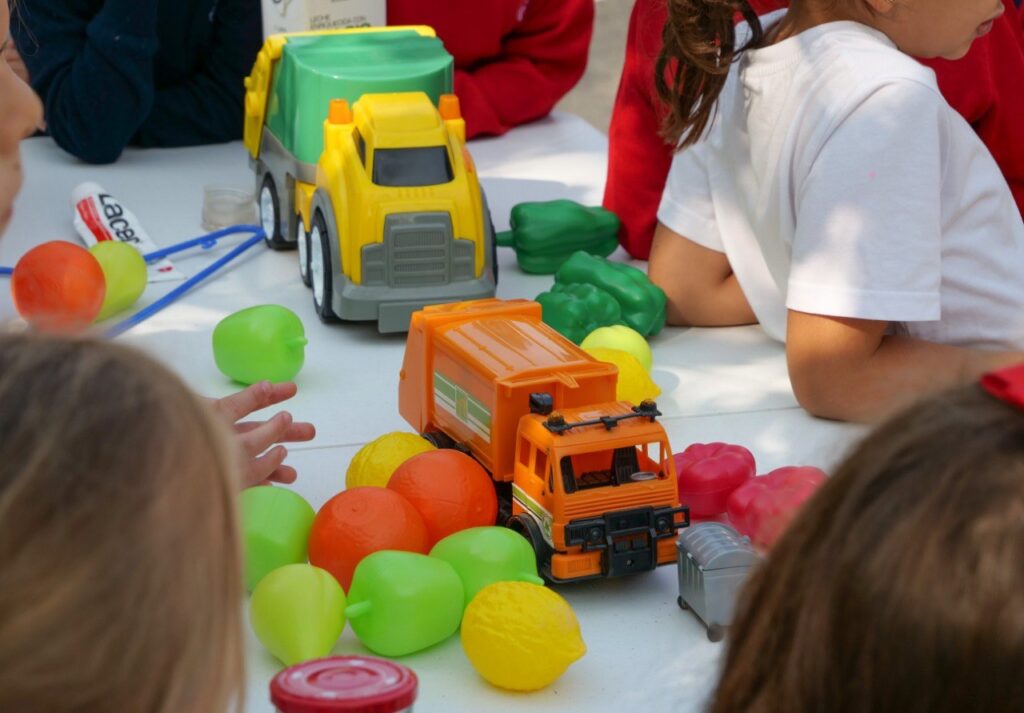
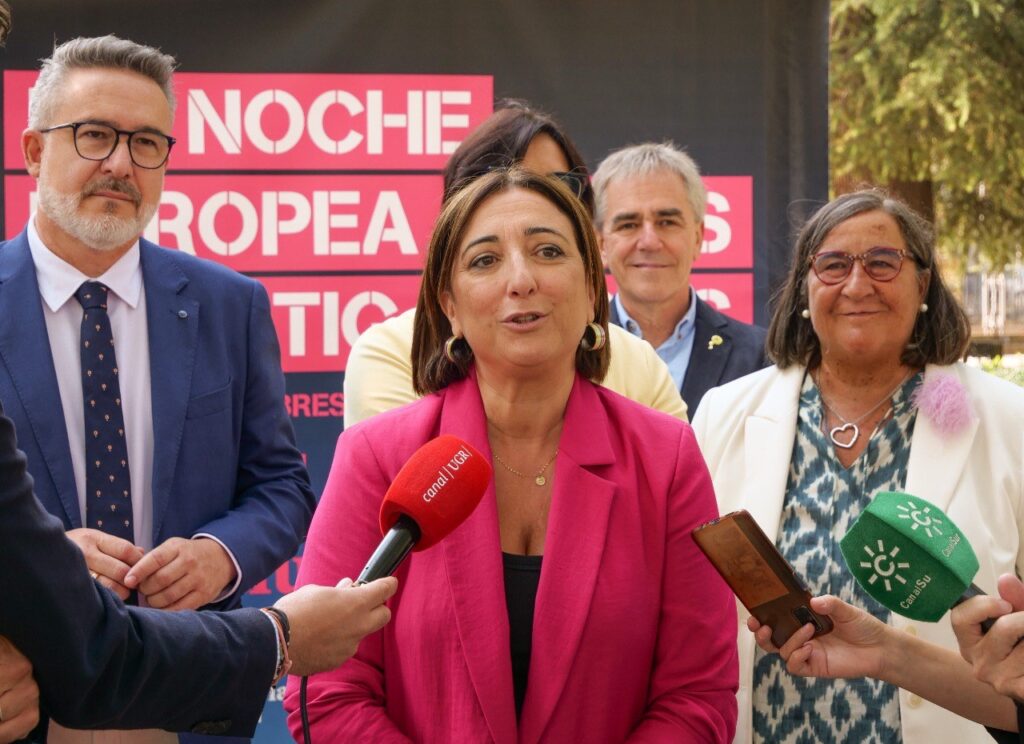
The European Researchers’ Night will be held on Friday, 27 September, to bring science closer to the general public. The UGR is participating in the organisation of 298 activities in the cities of Granada, Ceuta and Melilla, with almost 1,000 researchers involved.
The presentation of this European event was attended by the Vice-Rector for University Extension, Heritage and Institutional Relations of the UGR, Marga Sánchez Romero; the provincial delegate for Educational Development and Vocational Training and for University, Research and Innovation of the Andalusian Regional Government, María José Martín Gómez; the director of the School of the CSIC Zaidín Experimental Station of the CSIC, Alfonso Clemente Gimeno; the provincial deputy for European Funds and the provincial delegate for Educational Development and Vocational Training of the Andalusian Regional Government, María José Martín Gómez; the director of the School of the CSIC Zaidín Experimental Station, Alfonso Clemente Gimeno; the provincial deputy for European Funds, Development, Industry and Employment, Antonio Díaz Sánchez; the coordinator of Educational Services of the Science Park, Gonzalo Rodríguez Morillas; the president of the CajaGranada Foundation, María Elena Martín-Vivaldi; the coordinator of Innovation of the Granada City Council, Francisco Aranda; the scientific director of ibs. GRANADA, María José Sánchez Pérez; the scientific director of the Biobank of the Andalusian Public Health System, José Manuel Puerta Puerta; and the director of the Descubre Foundation, Teresa Cruz, among other authorities.
Marga Sánchez Romero, vice-rector of University Extension, Heritage and Institutional Relations of the UGR, highlighted the ‘effort made by the 16 institutions participating in La Noche so that, for the 12th year, a day is organised in which all scientific disciplines come together to communicate and disseminate research’. The vice-chancellor underlined the importance of the UGR campuses in Ceuta and Melilla in the celebration of this event, with 150 and 175 activities respectively.
The regional delegate for Educational Development and Vocational Training and University, Research and Innovation, María José Martín, thanked ‘all the students and researchers who are going to participate in these more than 300 activities and in the 60 previous ones, such as those carried out at IES Sagrado Corazón’. For the delegate, ‘bringing young people closer to science and generating vocations is a challenge we have as a society in order to have more researchers in the future’ and she highlighted that ‘one out of every three activities that take place in Andalusia is held in Granada’. In this sense, he thanked all the institutions such as the Science Park, PTS and all the research centres for ‘joining forces so that year after year scientific research can be highlighted and science can be brought closer to young people’.
The director of the Descubre Foundation, Teresa Cruz, claimed that the European Researchers’ Night was a “benchmark event in the promotion and reinforcement of the social communication of science”. ‘Among the values of this European initiative, which the Descubre Foundation leads in Andalusia, is that it has become the best possible school of science for young people’, said Teresa Cruz.
For his part, the Deputy for European Funds, Development, Industry and Employment, Antonio Díaz, said that ‘we are very pleased to participate in this conference again. We collaborate with the University and seek funding so that researchers can move forward with their projects. It is very important to understand that these conferences bring science and research closer to the people in the street and make them see that it can be applied in everyday life. There are 400 cities that organise this event in more than 30 countries. The Provincial Council will continue to collaborate with the University. In fact, on this day we will have a joint stand where information will be given to explain to young people the issue of sustainability, care for the environment and also raise awareness about depopulation’.
Alfonso Clemente, director of the Zaidín Experimental Station, has expressed the involvement of all the centres belonging to the CSIC in the European Researchers’ Night. ‘Workshops on exoplanets, moon dust, the Sun, DNA and biomedicine will be just some of those given by researchers belonging to our institution,’ said Clemente.
The scientific director of the Andalusian Public Health System Biobank, José Manuel Puerta, also highlighted the activities that go beyond the Paseo del Salón, where the bulk of the day will be held in Granada, ‘such as the open days at the PTS centres: the UGR Biomedical Research Centre and the Genyo centre’.
Of the 945 researchers participating in the activities organised by the UGR, 625 will be in Granada, 197 in Ceuta and 123 in Melilla. Different UGR centres are participating in the coordination and implementation of this event, such as the DaSCI, the Centre for Research in Information and Communication Technologies, the Faculty of Education Sciences, the Mind, Brain and Behaviour Research Centre and IFMIF-DONES, among others.
During the presentation, activities were held for schoolchildren related to recycling, handicrafts and knowledge of nature and birds through an educational walk.
More information: https://lanochedelosinvestigadores.fundaciondescubre.es/
Rocío Romero, Sergio Damas, Daniel Molina and Rocio Romero are participating researchers and Nuria Rodríguez, Juan José Herrera are contracted under the COLLABORATION AGREEMENT BETWEEN THE UNIVERSITY OF GRANADA AND THE S.M.E. NATIONAL INSTITUTE OF CYBER SECURITY OF SPAIN M.P., S.A. FOR THE PROMOTION OF STRATEGIC CYBER SECURITY PROJECTS IN SPAIN, funded by the S.M.E. INSTITUTO NACIONAL DE CIBERSEGURIDAD DE ESPAÑA M.P., S.A. (hereinafter ‘INCIBE’) and by the European Union – NextGenerationEU.
Therefore this activity is part of the support of the collaboration agreement between the UNIVERSITY OF GRANADA and the S.M.E. INSTITUTO NACIONAL DE CIBERSEGURIDAD DE ESPAÑA M.P., S.A. FOR THE PROMOTION OF STRATEGIC CYBER SECURITY PROJECTS IN SPAIN, financed by the S.M.E. INSTITUTO NACIONAL DE CIBERSEGURIDAD DE ESPAÑA M.P., S.A. (hereinafter ‘INCIBE’) and by the European Union – NextGenerationEU.

